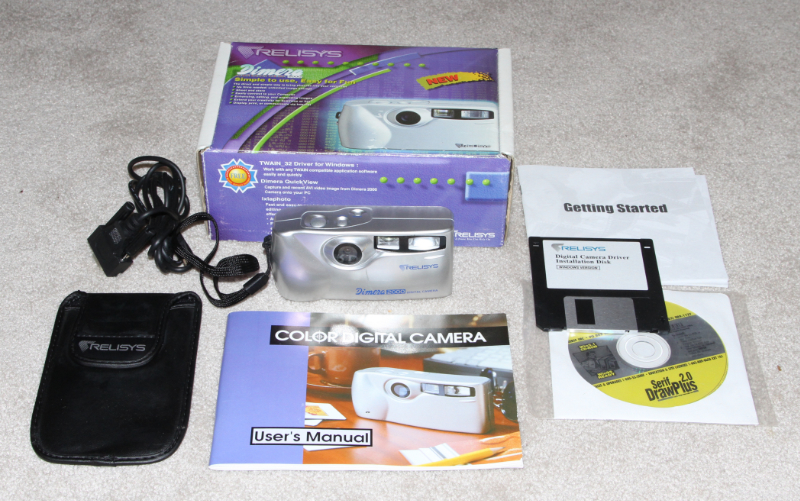
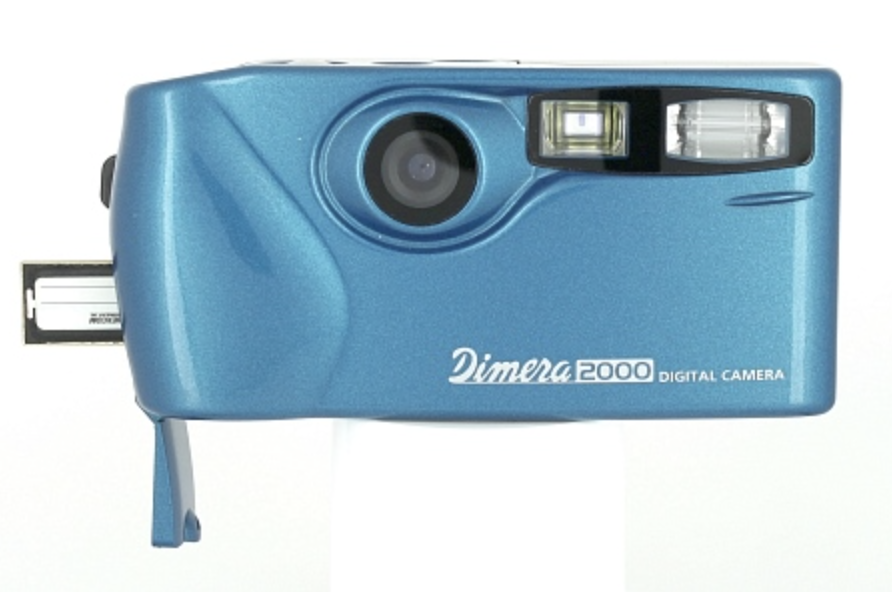
RELISYS (TECO) Dimera 2000 - 1997.
1997 R-S R

![]()

RELISYS (TECO)
Dimera 2000 - 1997.
1/3-inch 640 x 480 pixel
CCD. F/4 lens. Shutter 1/30 to 1/10,000 second. IMB
internal memory.
It also came in blue as shown by Dennis van Hall photo on the right. MSRP $150.
http://www.photographyreview.com/brand/cameras/digital-cameras/teco-image-systems.html
https://www.digitalkameramuseum.de/en/cameras/item/relisys-dimera-2000
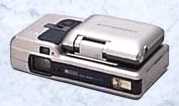
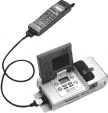
RICOH
RDC-2S - 1997.
Updated version of the 2V of 1996. 768
x 576 pixel
CCD.
ISO 90. F/2.0 35mm and 55mm switchable autofocus lens. Shutter
1/8
to 1/1000 second. MSRP $649.
http://www.computer-specifications.com/specifications/Ricoh-RDC2S-Specs.html
https://www.digitalkameramuseum.de/en/cameras/category/ricoh-2

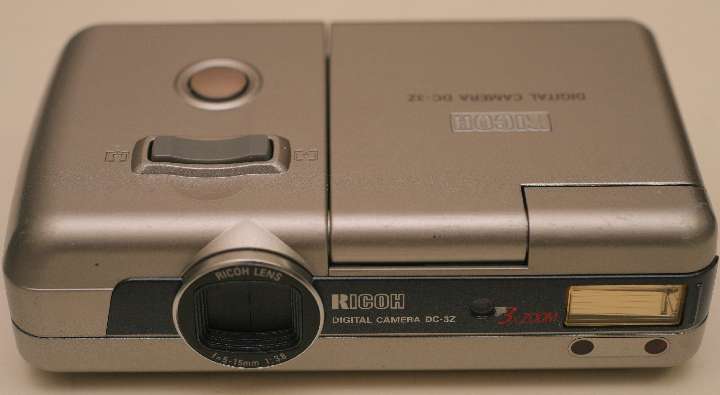
![]()
http://www.interq.or.jp/sun/tkp/digitalcamera/rdc3Z.html
http://www.ricoh-imaging.co.jp/japan/dc/past/dc/3/
http://www.awane-camera.com/7/2/ricoh_dc-3g/index.htm
https://www.youtube.com/watch?v=LYuy1cKptq0
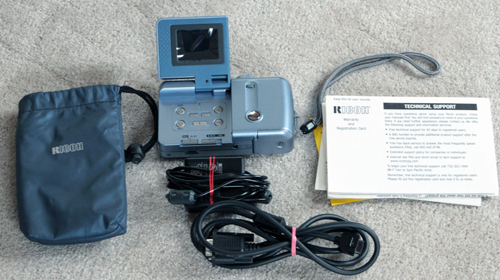
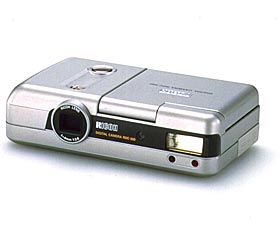
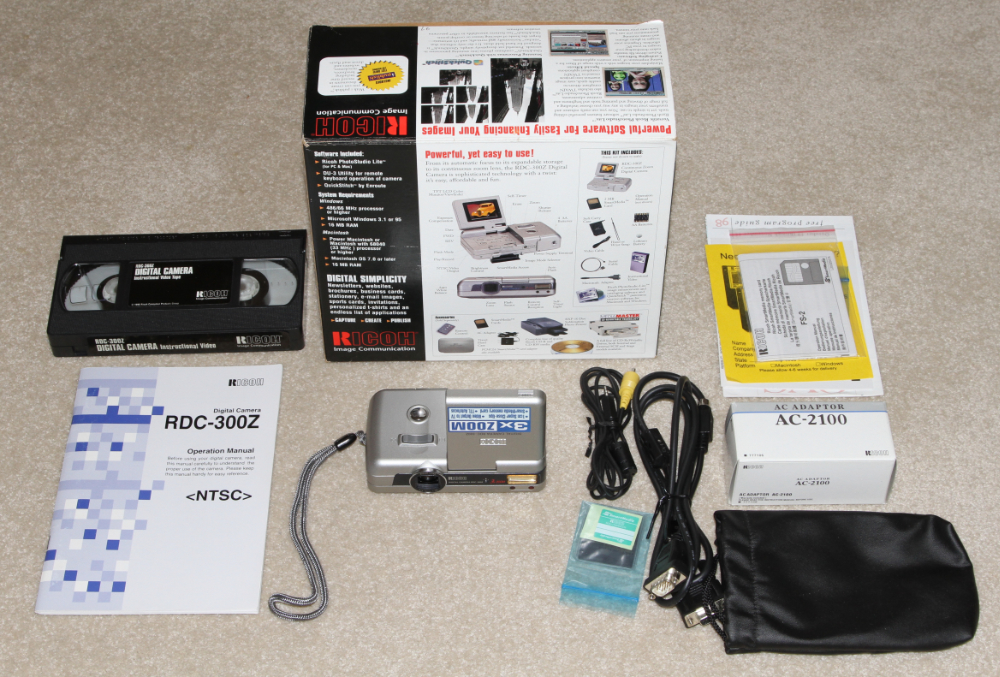
RICOH
RDC-300, (Phillips ESP2) and 300Z - 1997.
640
x 480 pixel CCD. ISO 80. 38mm autofocus lens (45mm - 135mm
for 300Z). Shutter 1/5 to 1/8000 second. Rare blue 300 shown above left, Rare on U.S. eBay.
http://camerapedia.wikia.com/wiki/Ricoh_RDC-300
https://www.digitalkameramuseum.de/en/cameras/category/ricoh-2
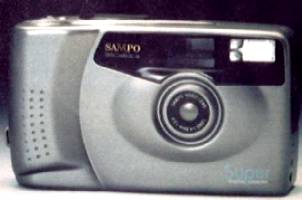
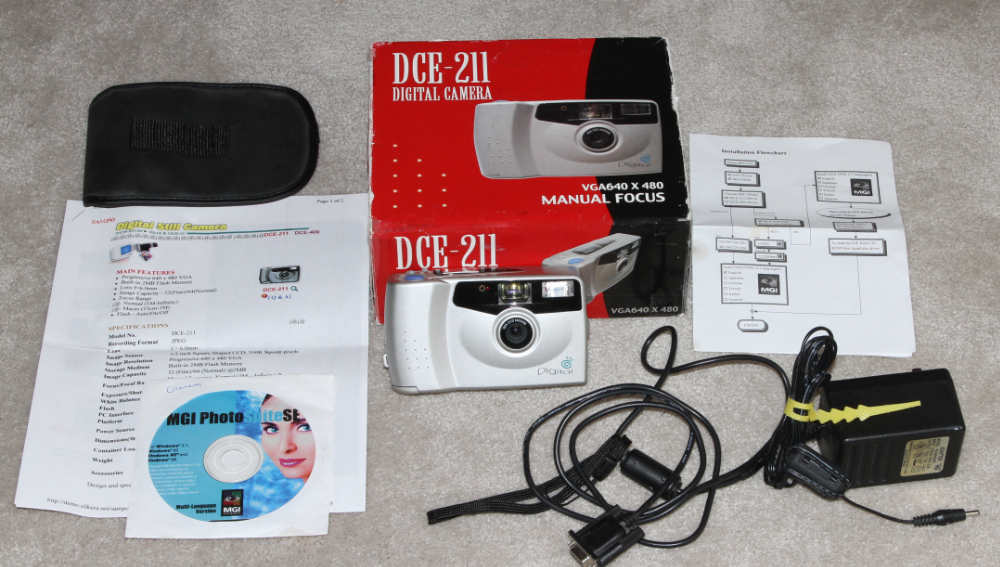
![]()
SAMPO
CyberSnap DCE-211 - 1997.
Shown at Computex Taipei '97. 1/3-inch 640 x 480 pixel CCD. (Extremely Rare on U.S. eBay)
http://pc.watch.impress.co.jp/docs/article/970604/cmptex1.htm
https://www.digitalkameramuseum.de/en/cameras/item/sampo-dce-211
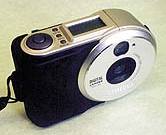
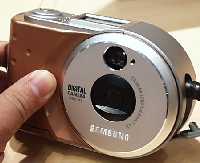
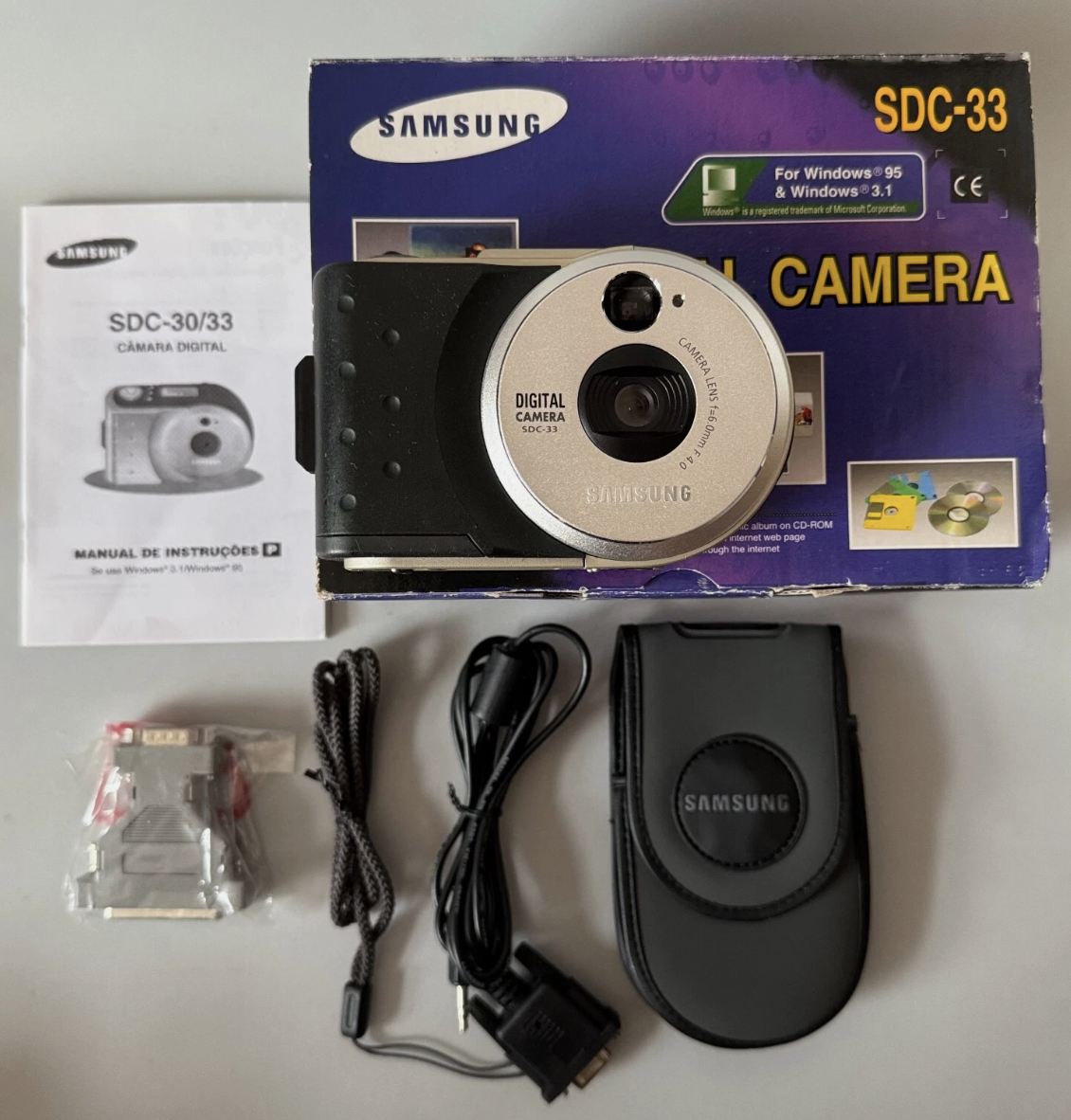
![]()
SAMSUNG
SDC-30/33 - 1997. First shown
during
World PC Expo 97. 1/3-inch
640 x 480 pixel CCD. F/4 43mm fixed-focus lens.
Shutter
1/4 to 1/8,000 second. 2MB internal memory for the 30 and 4MB for
the 33. Click on second image to see enlarged view. (Extremely Rare on U.S. eBay)
This is an example of why collectors become collectors and stay collectors (bit by the bug). In 28-years we had never seen any sample of the above camera on eBay, and didn't expect to, however, we did save it in the eBay saved search system just in case. In April of 2025, we were surprised to see it pop up in our email. We were even more surprised when we received it and found it to be new in it's original box. Is it the last such new-in-the-box sample anywhere? Perhaps. If there is another somewhere, perhaps you will be the one to obtain it!
lhttp://pc.watch.impress.co.jp/docs/article/970925/digicame.htm
https://www.digitalkameramuseum.de/en/cameras/item/samsung-sdc-33
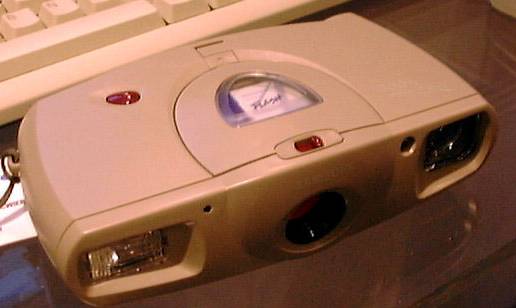

SAMSUNG
DigiMax 30 (Aztech MDC180, Intel PC Camera) - 1997, Aztech
MDC180 shown at Comdex Fall '97, Samsung DigiMax 30 and Intel PC Camera
shown at CeBIT '98. 768 x 576 pixel CMOS image sensor. NOT MARKETED.
http://pc.watch.impress.co.jp/docs/article/980216/pma_3.htm
https://www.digitalkameramuseum.de/en/prototypes-rarities/item/samsung-digimax-30
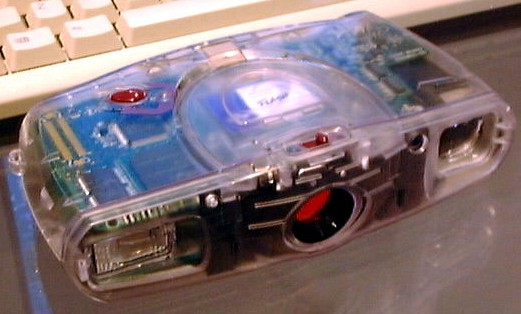
http://pc.watch.impress.co.jp/docs/article/980327/cebit_4.htm
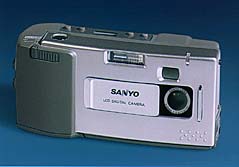
SANYO DSC-1 - 1997. Click on camera for enlarged view. CCD 1/3 inch, VGA (640 x 480 dots) pixels, 2 MB memory. Lens f = 5 mm Fixed focal length, aperture F: 2.8 / 5.6 / 11. NOT MARKETED.
https://pc.watch.impress.co.jp/docs/article/961007/sanyo.htm

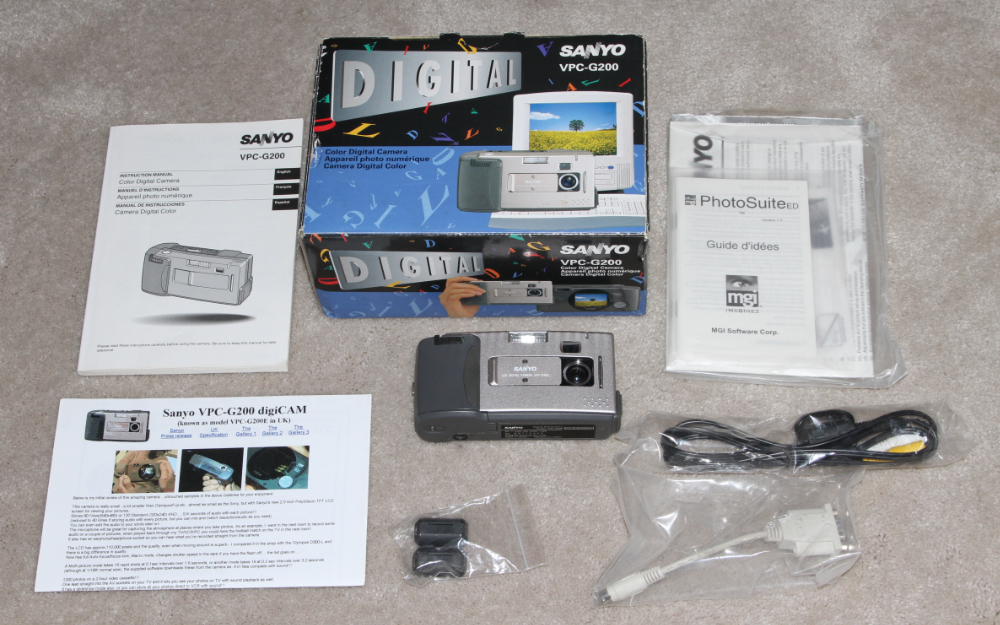
![]()
SANYO VPC-G200 (DSC-V1 in Japan, VPC-G200EX in UK -
1997. Sold in 1998 as Fisher
FVD-V1 in the U.S. (with front of 1999 VPC-Z380) 1/3-inch
640 x 480 pixel CCD. ISO 80. 37mm autofocus f/2.8
lens.
Shutter 1/4 to 1/10,000 second. MSRP $999.
https://pc.watch.impress.co.jp/docs/article/961001/sanyodc.htm
https://www.digitalkameramuseum.de/en/cameras/item/sanyo-vpc-g200
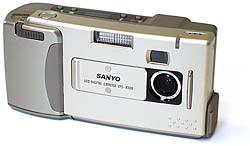
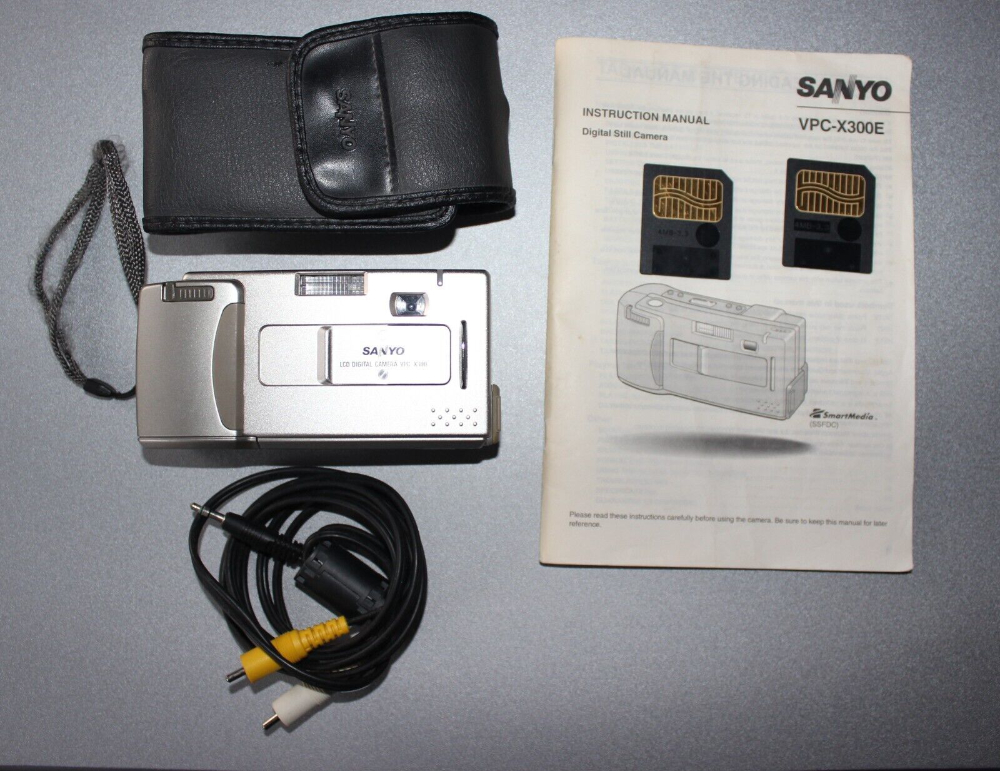
![]()
SANYO VPC-X300 ( DSC-X1 in Japan) - 1997. 1/3-inch
1024 x 768 pixel CCD. 37mm autofocus f/2.8 lens. Shutter
1/4
to 1/500 second. MSRP $899.
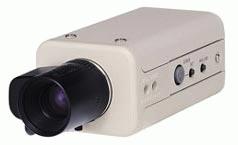
![]()
SANYO VCC-5974 - 1997. Sample
of early CCD color video camera. 1/3-inch CCD with .4MP (470 line
resolution). MSRP with lens and optional equipment: $325.
http://camera.manualsonline.com/manuals/mfg/sanyo/vcc5974_1.html
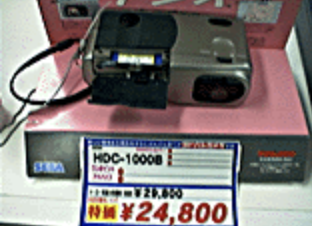
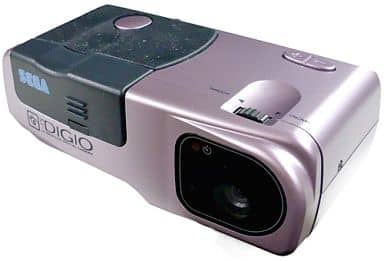
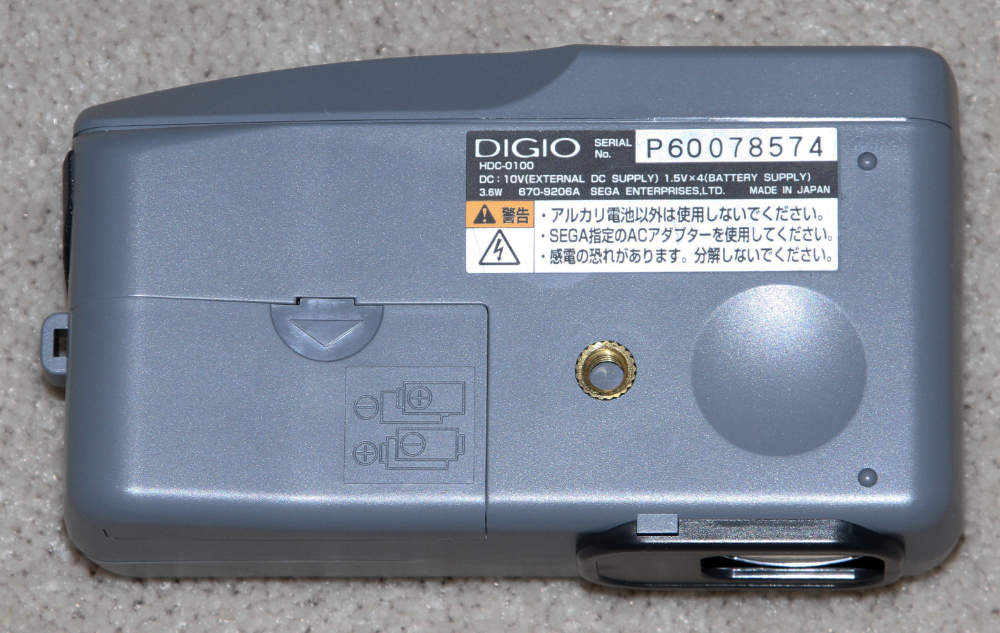
HDC-1000B
HDC-1000C
SEGA
Digio HDC-1000B & HDC 1000C (HDC-0100) - 1997. Upgrades
to 1996 SEGA Digio SJ-1 and HDC-1000A. 320
x 240 Pixels. Apparently
sold in Japan only. The SJ-1s above were sold as the HDC-1000B
and HDC-1000C. They had a clipon magnifier that the original SJ-1
of 1996 did not have. However, they and apparently all four Sega
versions of the SJ-1 are marked HDC-0100 on the bottom of the camera
(see photo above). The HDC-1000B has a silver body and the
HDC-1000C a pinkish body.
http://pc.watch.impress.co.jp/docs/article/970328/ps_dcam.htm
https://www.suruga-ya.jp/product/detail/711000294
https://www.digitalkameramuseum.de/en/cameras/category/sega-2
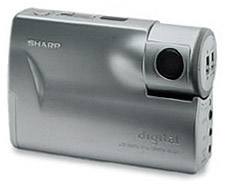
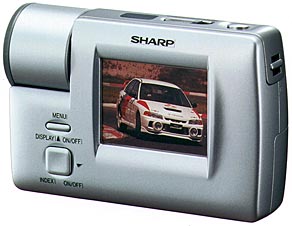
![]()
SHARP
VE-LC1(S/H/E/U) - 1997. (S
=
Continental
Europe, H = U.K., E = Asia, U = N. America). 1/3-inch 640 x 480
CCD.
ISO 100. Fixed-focus 43mm f/2.8 lens. Shutter 1/7.5 to
1/2000
second. MSRP $749.
https://www.digitalkameramuseum.de/en/cameras/item/sharp-ve-lc1
http://aiueokblog1.blogspot.com/2014/12/sharplcd-ve-lc1.html
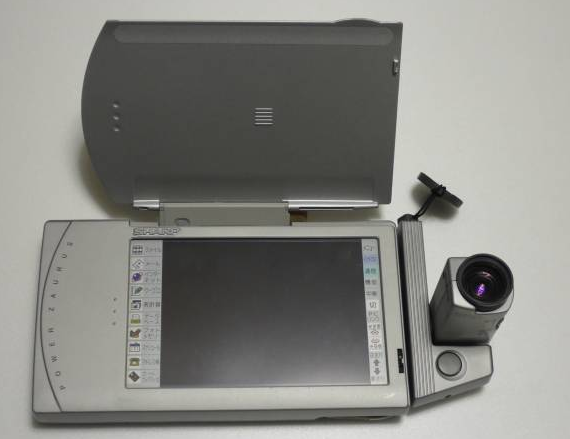
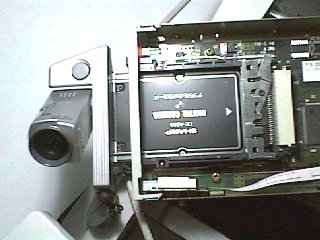
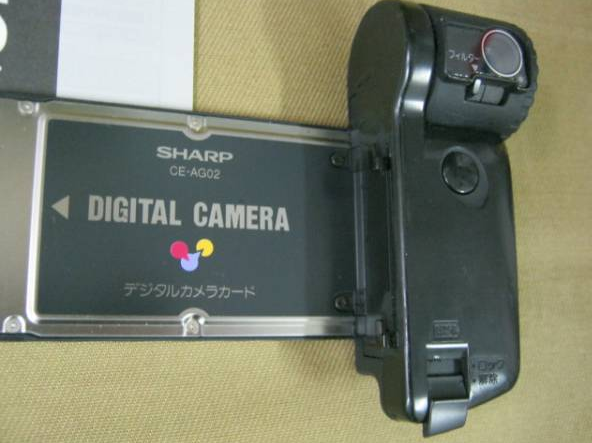
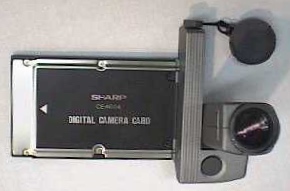
SHARP PDA DIGITAL CAMERA CARDS - CE-AG02, CE-AG03 and CE-AG04 - 1997. Digital
cameras for Sharp Zaurus Personal Digital Assistants (attached to right
side of the PDA). These camera cards were used to give the Sharp
PDAs photographic capability. Second photo shows PDA with back
removed. Third photo shows CE-AG02, CE-AG04 on far right.
640 x 480 pixels.
https://www.digitalkameramuseum.de/en/cameras/category/sharp-2
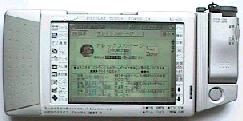
SHARP MI-506 PDA - 1997. Digital camera card CE-AG03 attached to right side of Sharp Zaurus MI-506 PDA.
http://pc.watch.impress.co.jp/docs/article/970623/sharp.htm
http://plaza.rakuten.co.jp/happycamucamu/diary/201302140000/
https://www.digitalkameramuseum.de/en/cameras/category/sharp-2
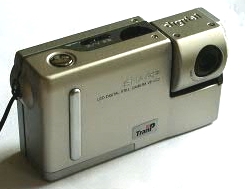
![]()
SHARP
VE-LC2 - 1997. Shown
at Fall Comdex
'97, available in February 1998. Similar to VE-LC1, but supplied
with clip-on optical viewfinder. 1/3-inch 640 x 480 CCD.
ISO
100. Fixed-focus 43mm f/2.8 lens. Shutter 1/7.5 to 1/2000
second.
MSRP $499. (Rare on U.S. eBay)
http://www.sharp.co.jp/sc/eihon/pcpj1/text/sys.html
https://books.google.com/books?id=fFrjSBw0w14C&pg=PA167&lpg=PA167&dq=SHARP+%2B+%22VE-LC2%22&source=bl&ots=CnDlWn9jUG&sig=d4Egh0wcmVgd9i1onjGvKcY6QYw&hl= 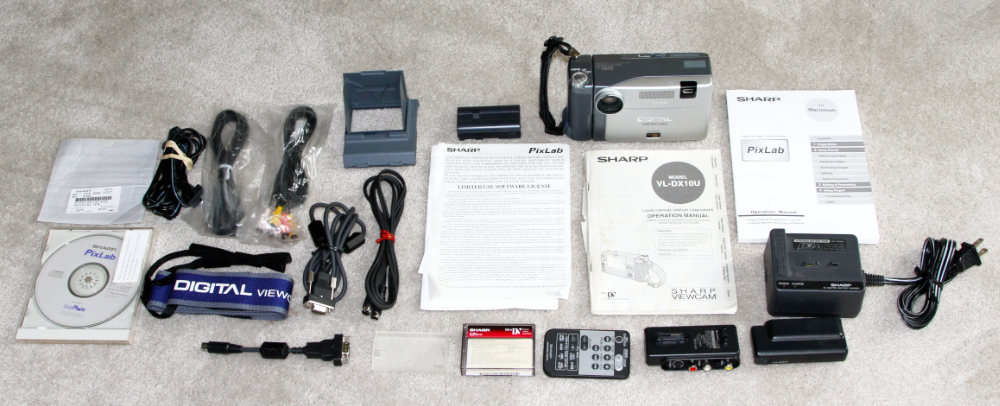
![]()
SHARP
VL-DX10 - 1997.
Follow-up of VL-DX1 of 1996. Camcorder that could also store digital still images. Pixels 720x480
for video or 640x480 for still images. Its still images were
considered to be inferior to digital cameras of that time as well as
the Canon Optura MV1 (see our page 1997 A-D) which had an MSRP of $700
less than the VL-DX10. MSRP $3,399. Sold in U.S. only. PC Magazine, 20 January
1998, page 61. (Rare on U.S. eBay)


![]()
SONY CD-RW
Discs - 1997. Sony introduces CD-RW discs.
https://en.wikipedia.org/wiki/CD-RW
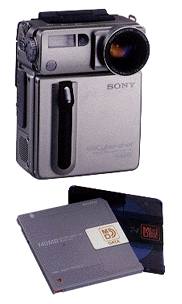
 SONY Cybershot
DSC-MD1 - 1997. Although the CD1000
(a year 2000 model camera) was Sony's first digicam to use a three-inch CD-R
as the recording media, it wasn't Sony's first still image digicam to be marketed
using a laser and a small plastic disc to record JPEGs. In December of
1997, Sony marketed a camera in Japan called the DSC-MD1. It used a version
of the Sony-developed MiniDisc (MD) which was first announced in 1991 for consumer
audio. In 1993, Sony introduced the MD Data, a MiniDisc for storing computer
data. MiniDiscs now comes in both prerecorded and recordable versions.
The MD system uses magneto-optical technology to record audio or images and
the discs are enclosed in a 7cm x 7cm cartridge. The DSC-MD1 recorded
up to 1000 640 x 480 images on a single 140MB MD Data Disc. 1/3
inch 640 x 480 pixel CCD. 3X zoom 37 to 111mm f/2 lens with
macro. Shutter speed: auto (1/30 to 1/1000 second), manual (1/4
to 1/4000 second).
SONY Cybershot
DSC-MD1 - 1997. Although the CD1000
(a year 2000 model camera) was Sony's first digicam to use a three-inch CD-R
as the recording media, it wasn't Sony's first still image digicam to be marketed
using a laser and a small plastic disc to record JPEGs. In December of
1997, Sony marketed a camera in Japan called the DSC-MD1. It used a version
of the Sony-developed MiniDisc (MD) which was first announced in 1991 for consumer
audio. In 1993, Sony introduced the MD Data, a MiniDisc for storing computer
data. MiniDiscs now comes in both prerecorded and recordable versions.
The MD system uses magneto-optical technology to record audio or images and
the discs are enclosed in a 7cm x 7cm cartridge. The DSC-MD1 recorded
up to 1000 640 x 480 images on a single 140MB MD Data Disc. 1/3
inch 640 x 480 pixel CCD. 3X zoom 37 to 111mm f/2 lens with
macro. Shutter speed: auto (1/30 to 1/1000 second), manual (1/4
to 1/4000 second).
http://www.minidisc.org/part_Sony_DSC-MD1.html
http://www.minidisc.org/boyde/dscmd1.html
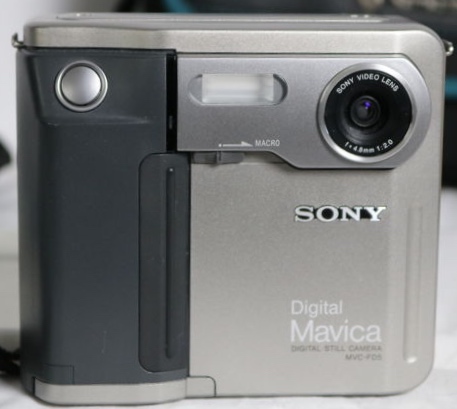
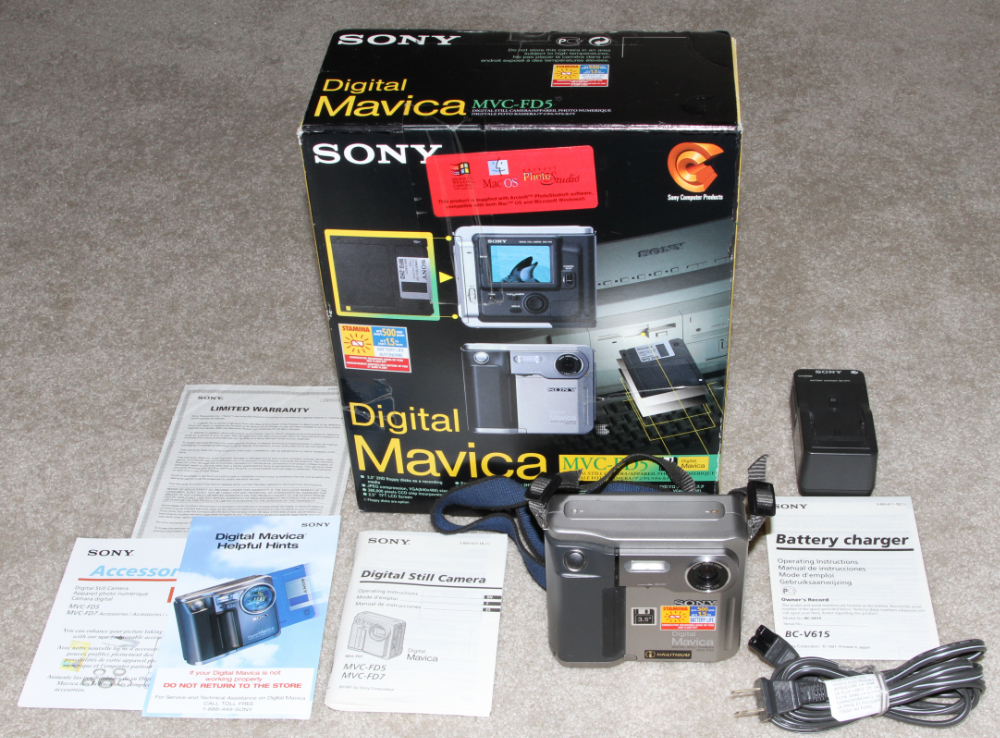
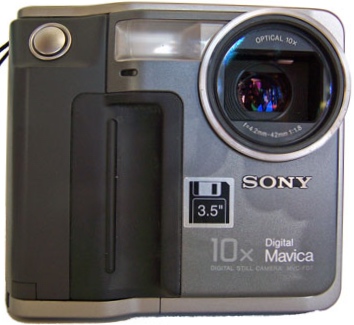


![]()
![]()
SONY Mavica
MVC-FD5 and MVC-FD7 - 1997. First digicams
to use standard floppy disks as image recording media (FD5 and FD7) and first
to combine floppy disk capability with 10X zoom (FD7). 1/4-inch 640 x
480 pixel CCD. ISO 100. Shutter 1/60 to 1/4000 second.
47mm lens f/2 (FD5), 10X zoom 40mm to 400mm f/1.8 lens (FD7). Lithium
Ion battery. MSRP $599 (FD5), $799 (FD7). At various times Sony
Mavica cameras accounted for up to 40% of the U.S. digicam market.
https://en.wikipedia.org/wiki/Sony_Mavica
http://content.time.com/time/specials/packages/article/0,28804,2023689_2023773_2023767,00.html

 640
x 480 PIXELS. For a number of
years
640 x 480 pixel CCDs were the standard resolution for still
video
and digital cameras. Today, 640 x 480 pixels is considered useful for kids cameras only. Many
consumer
models are now available at 20MP or greater. However, there are
some
misconceptions concerning the need for and value of high resolution
CCDs.
When viewing images on a computer, one camera pixel equates to one
computer
monitor pixel. This means that additional pixels will make the
image
larger, but not sharper. The sharpness of the image depends on
the
quality of the monitor, not the resolution of the camera. For
example,
when clicking on the first image at the left it will open to 640
vertical
pixels and 480 horizontal pixels. Depending on your monitor size
and resolution setting, the image will fill your screen, or may even
require
you to scroll up and down to see the entire image. Similarly,
home
television monitors were generally 640 x 480 pixels in size at that time such that a
landscape (horizontal) image would fill the entire screen. Even
the
HD TV monitors that are now on the market will not
benefit
by digicam images much greater than 2MP in resolution.
E-mail
capacity and time limitations also dictate that low-resolution images
be
used for messages. Equally so for posting images on a web site
such
as this. It is only when images are printed on paper that
additional
pixels become an advantage. The old standard for printing a
film-like
photo (resolution similar to a typical 35mm print) required 300 pixels
per inch vertically and horizontally. That is, a 640 x 480 pixel
image would be expected to produce a quality photo limited to about 1.5
x 2 inches in size. However, today's inkjet printers have
improved
dramatically over their predecessors and excellent prints can be
obtained
in the 200 pixels-per-inch range. This would equate to a print of
about 2 inches by 3 inches or so for a 640 x 480 pixel camera.
Still
small, but of wallet size and equal in quality to a typical drug store
print. A 2MP (1600 x 1200 pixel) digicam can produce
excellent
prints at 6 x 8 inches. The second image above is a
John
Walkenbach macro photo (close-up) of a quarter taken with a 640 x 480
pixel
camera (Sony FD-71). The image was cropped to 435 x 373 pixels. As you can see, his low
resolution digicam was able to capture a very detailed closeup photo,
and
without use of additional lenses. John stated that the camera was
hand-held and the photo taken without any special lighting.
640
x 480 PIXELS. For a number of
years
640 x 480 pixel CCDs were the standard resolution for still
video
and digital cameras. Today, 640 x 480 pixels is considered useful for kids cameras only. Many
consumer
models are now available at 20MP or greater. However, there are
some
misconceptions concerning the need for and value of high resolution
CCDs.
When viewing images on a computer, one camera pixel equates to one
computer
monitor pixel. This means that additional pixels will make the
image
larger, but not sharper. The sharpness of the image depends on
the
quality of the monitor, not the resolution of the camera. For
example,
when clicking on the first image at the left it will open to 640
vertical
pixels and 480 horizontal pixels. Depending on your monitor size
and resolution setting, the image will fill your screen, or may even
require
you to scroll up and down to see the entire image. Similarly,
home
television monitors were generally 640 x 480 pixels in size at that time such that a
landscape (horizontal) image would fill the entire screen. Even
the
HD TV monitors that are now on the market will not
benefit
by digicam images much greater than 2MP in resolution.
E-mail
capacity and time limitations also dictate that low-resolution images
be
used for messages. Equally so for posting images on a web site
such
as this. It is only when images are printed on paper that
additional
pixels become an advantage. The old standard for printing a
film-like
photo (resolution similar to a typical 35mm print) required 300 pixels
per inch vertically and horizontally. That is, a 640 x 480 pixel
image would be expected to produce a quality photo limited to about 1.5
x 2 inches in size. However, today's inkjet printers have
improved
dramatically over their predecessors and excellent prints can be
obtained
in the 200 pixels-per-inch range. This would equate to a print of
about 2 inches by 3 inches or so for a 640 x 480 pixel camera.
Still
small, but of wallet size and equal in quality to a typical drug store
print. A 2MP (1600 x 1200 pixel) digicam can produce
excellent
prints at 6 x 8 inches. The second image above is a
John
Walkenbach macro photo (close-up) of a quarter taken with a 640 x 480
pixel
camera (Sony FD-71). The image was cropped to 435 x 373 pixels. As you can see, his low
resolution digicam was able to capture a very detailed closeup photo,
and
without use of additional lenses. John stated that the camera was
hand-held and the photo taken without any special lighting.
NOTE: In
1999, Panasonic attempted to get on the floppy disk digital camera band
wagon started by Sony (the Panasonic PV-SD4090), but sales were not
great because flash card cameras were beginning to
take over sales of digital cameras by then. Used PV-SD4090
cameras are available on eBay at this time (2023) and sometimes even
one new in the box will appear. Below is a photo of the
Panasonic PV-SD4090. See our 1999+ page for more info on the PV-SD4090.
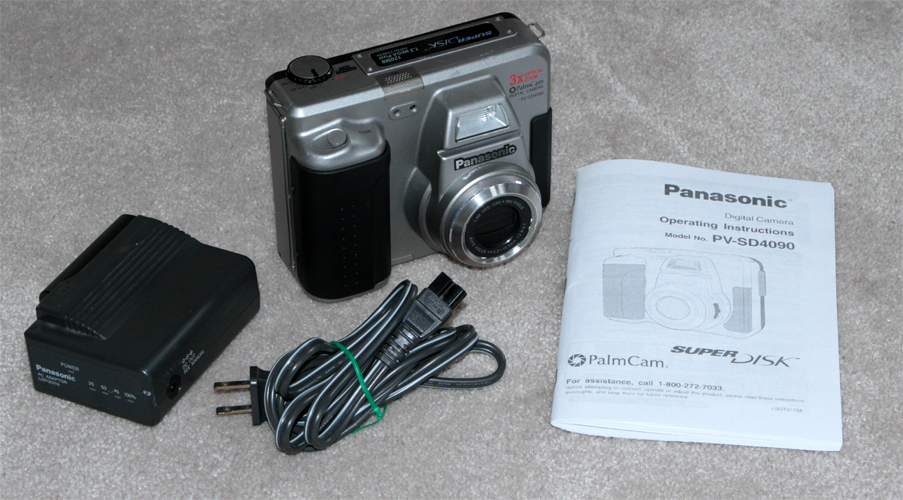
![]()
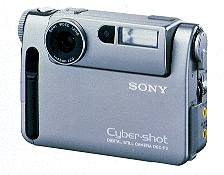
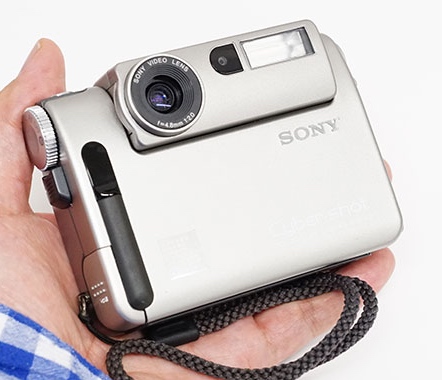
![]()
SONY
Cybershot DSC-F2 -1997. 1/3-inch 640 x 480 pixel CCD. 35mm f/2 lens.
Shutter
1/7.5 to 1/1000 second. 4MB internal memory. Shown at Comdex Fall 1997. May have been marketed in Japan only. (Extremely rare on U.S. eBay)
http://www.sony.co.jp/SonyInfo/News/Press_Archive/199705/97CI-054/
https://www.digitalkameramuseum.de/en/prototypes-rarities/item/sony-dsc-f2-proto
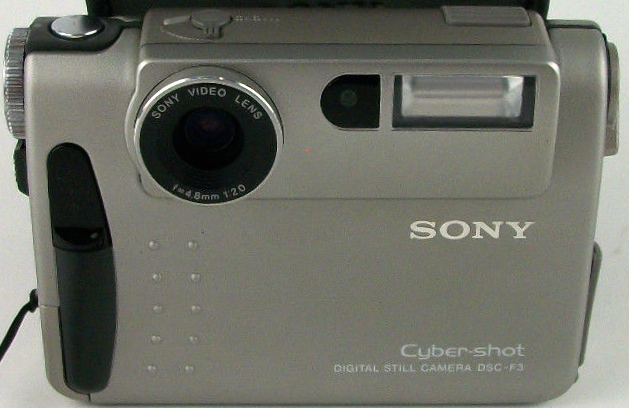
![]()
SONY Cybershot DSC-F3 -1997. Improved version of the DSC-F1/F2. 1/4-inch 640 x 480 pixel CCD. 46mm f/2 lens. Shutter 1/8 to 1/1000 second. 8MB internal memory. The F2 and F3 were not sold in the U.S., so it was very unusual to find the above camera in like-new condition on U.S. eBay. Of course, the writing on the back is all in Japanese.
http://www.sony.co.jp/SonyInfo/News/Press_Archive/199705/97CI-054/
https://www.digitalkameramuseum.de/en/cameras/item/sony-dsc-f3

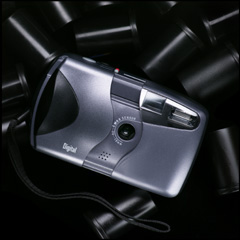

Sound Vision Test
image
SVmini 2
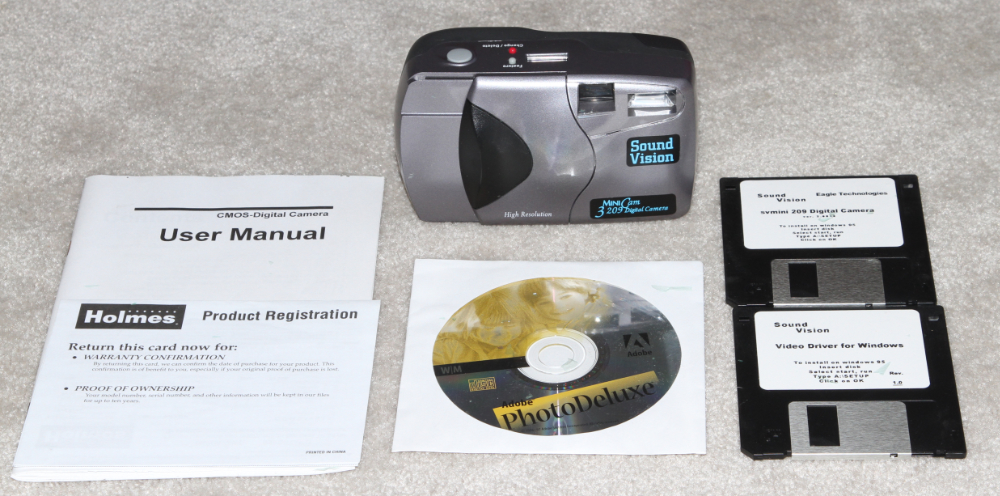
![]()
Sound Vision SVmini3-209
SOUND VISION
SVmini 2 (Vivitar Vivicam 3000, UMAX MDX-8000) and SVmini 3 - 1997. First digital still camera on the market to use a CMOS sensor
instead of a charge-coupled device (CCD). In January of 1997,
Sound Vision introduced it's first in a series of CMOS digital cameras, the
SVmini. It was also marketed as the Vivitar ViviCam-3000 and the UMAX
Sharpset-8000. The SVmini was based on a custom 1000 x 800 pixel CMOS
sensor manufactured by VLSI Vision Ltd., an Edinburgh based company that was
spun off from the University of Edinburgh. The photo at left is
a Sound Vision test image taken with the 1000 x 800 CMOS sensor an interpolated
up to 2000 x 1600 pixels in a PC. 1000 x 800 pixel CMOS image sensor.
47mm f/4 lens. Shutter 1 second to 1/2000 second. MSRP $399. .
The SVmini-2 shown below is similar in apperance to the Vivitar Vivicam
3100.). The SVmini3 209 has minor improvements over the SVmini 2 with an MSRP of $599.
https://www.digitalkameramuseum.de/en/cameras/item/soundvision-svmini-2
https://www.digitalkameramuseum.de/en/cameras/item/soundvision-svmini3-209
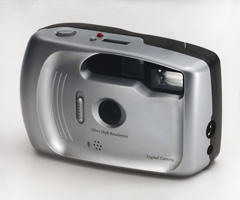

SOUND
VISION SVmini-209 (Vivitar Vivicam 3100) - 1997. First digicam with a CMOS imager rather than a CCD imager. Vivitar
version shown at Fall Comdex '97. Marketed in 1998. 960 x
800
pixel CMOS sensor. Fixed-focus 47mm f/4 lens. Shutter 1/30
second to 1/2000 second. The mini-2 used wavelet compression. MSRP $479. (Rare on U.S. eBay)
http://www.photographyreview.com/cat/cameras/digital-cameras/3-megapixel/sound-vision/svmini-209/prd_83079_3098crx.aspx
https://www.digitalkameramuseum.de/en/cameras/item/soundvision-svmini-209
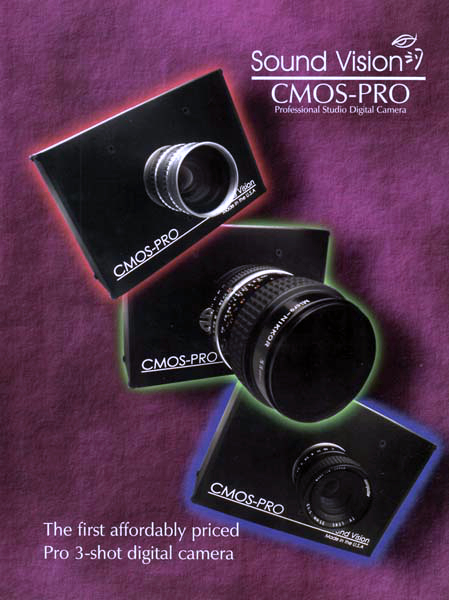

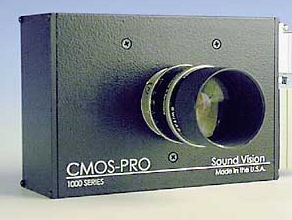
![]()
SOUND VISION CMOS Pro - 1997. Professional
studio camera for photographing non-moving objects. First
professional camera to use a CMOS sensor, 960 x 800 pixels. It
had no viewfinder and no operational controls. There was a C-mount lens
thread on the front and tripod bushes top and bottom. The camera was
set up and operated from a computer. A color exposure using flash took
approximately 23.5 seconds from clicking the 'Take Picture' button. The
first - red - exposure occurred after four and a half seconds, followed
by the green exposure seven seconds later, followed by blue after a
further seven seconds. It took a further five seconds for the three
exposures to be processed as one and to be displayed on the computer
monitor. Each of the CMOS-PRO's pixels was exposed three times through
a rotating filter wheel inside the camera. Although the imager
was less than
1MP in size, the three separate exposures produced images about 3MP in
size and they were considered to be of excellent quality and
far superior to other cameras of similar resolution at that time.
MSRP $1,995 (about $2,900 in 2015 dollars). (Rare on U.S. eBay)
http://camerapedia.wikia.com/wiki/Sound_Vision_CMOS-Pro
SOUND VISION SV-MICRO -1997. Sound Vision announced a microscope version of their CMOS-PRO camera, called the SV-Micro. With a three-shot rotating color wheel and a high-end CMOS sensor, the camera had exceptional image quality and resolution in a microscope camera for under $2,200. CMOS imager 800 x 960 pixel resolution. MSRP $1,995. (Rare on U.S. eBay)
https://palaeo-electronica.org/2001_1/s2/appen2.htm
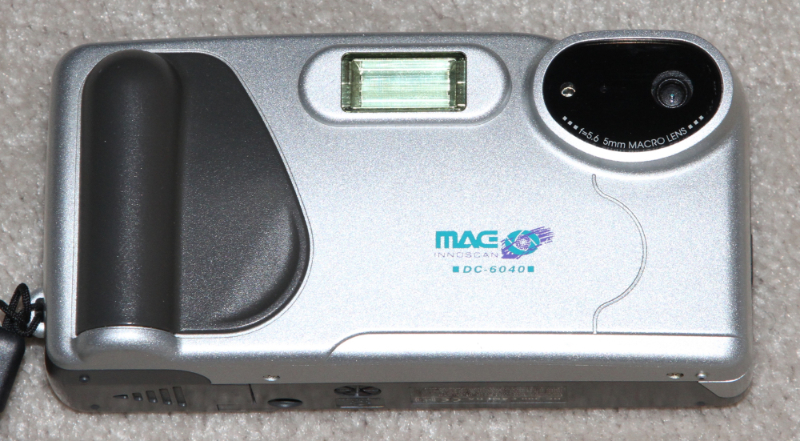
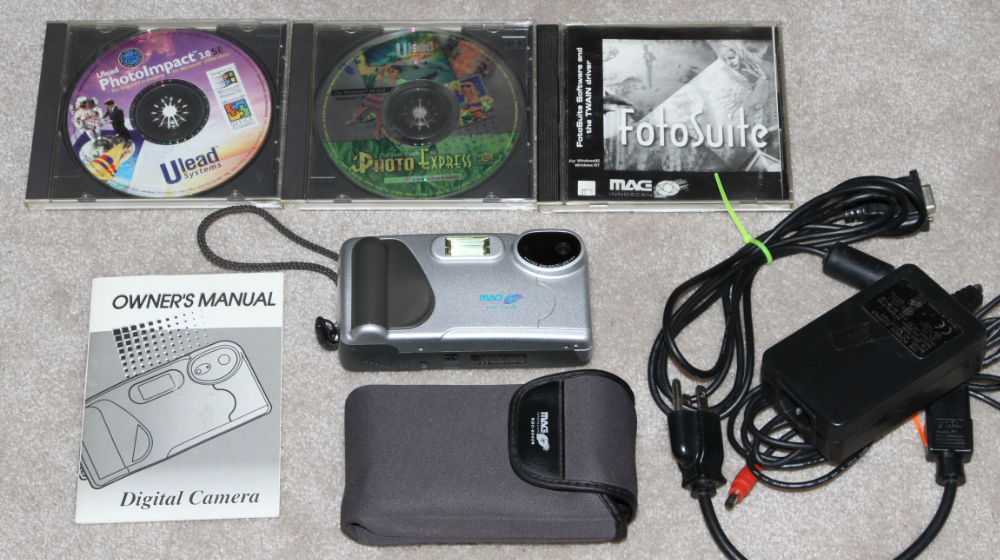
![]()
SPOT TECHNOLOGIES INNOSCAN / MAG INNOSCAN DC-6040 -1997.
Also sold as Addonics DC-300, Pretec DC-300, Premier DC-300 (OEM),
Polaroid PDC-300, Minolta Dimage-Pic, Vivitar Vivicam 2500, TCE
CD100/200. CCD 320 X 240 pixels. Lens 5mm, f/5.6.
Shutter 1/30 to 1/2000 second. Although the front of the camera
says MAG Innoscan DC-6040, the bottom of the camera says DC-300.
The manual is generic with no brand name indicated. No
manufacturer is indicated (manufactured in Taiwan), but it is pretty
certain to be one of the many DC-300 models produced by Premier Image
Technology (Pretec) and rebadged with the logos of other
companies. John Larish reported on this camera from Comdex '97
stating that it was from Spot Technologies. MSRP $299. (Extremely Rare on U.S. eBay)
http://www.so-fo.de/t24986f117-Herkunft-der-Minolta-Dimage-Pic-Premier-Taiwan.html
https://www.digitalkameramuseum.de/en/cameras/item/mag-dc-6040
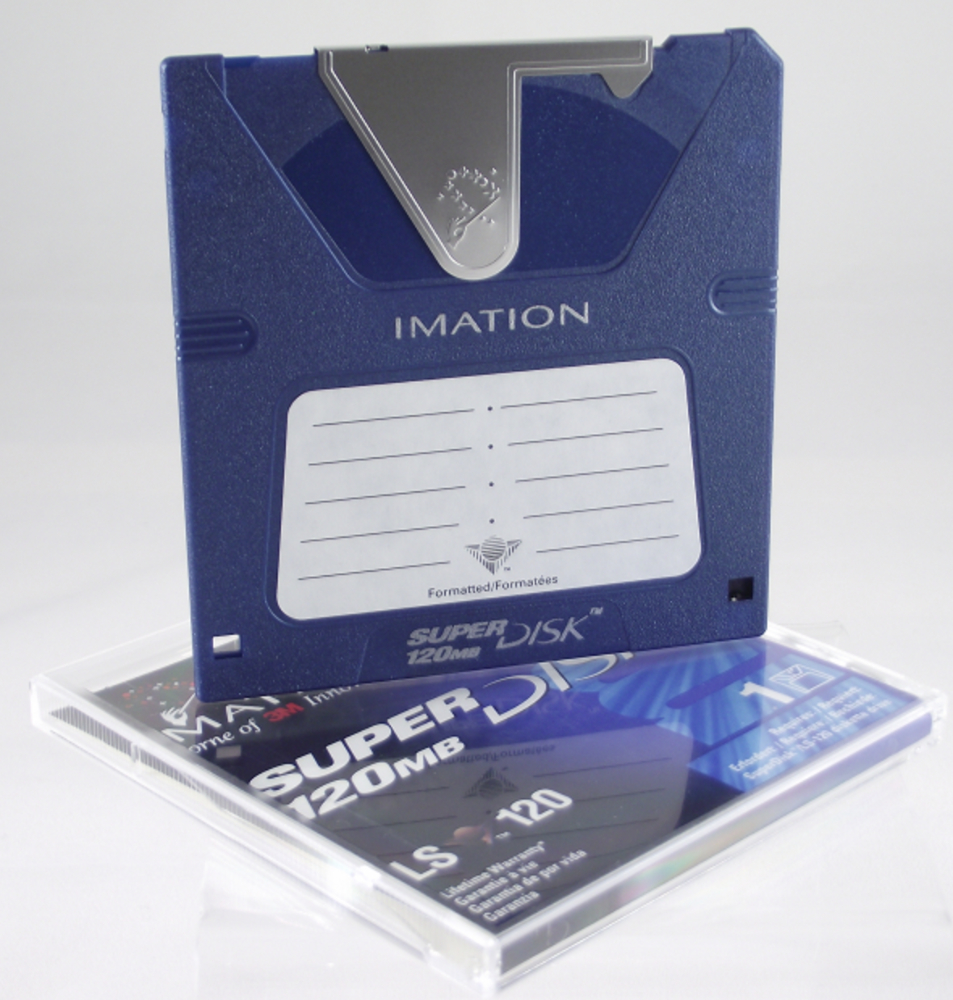
128MB SUPERDISK - 1997. The SuperDisk
LS-120 was a high-speed, high-capacity alternative to the
90 mm (3.5 in), 1.44 MB floppy disk. The SuperDisk
hardware was created by 3M's storage products groupe Imation in 1997,
with manufacturing mainly by Matsushita. Only a few
Panasonic cameras used the SuperDisk. SuperDisk worldwide ceased
manufacturing in 2003.
https://obsoletemedia.org/superdisk/
https://en.wikipedia.org/wiki/SuperDisk
https://www.digitalkameramuseum.de/en/memorycards
1997
R-S